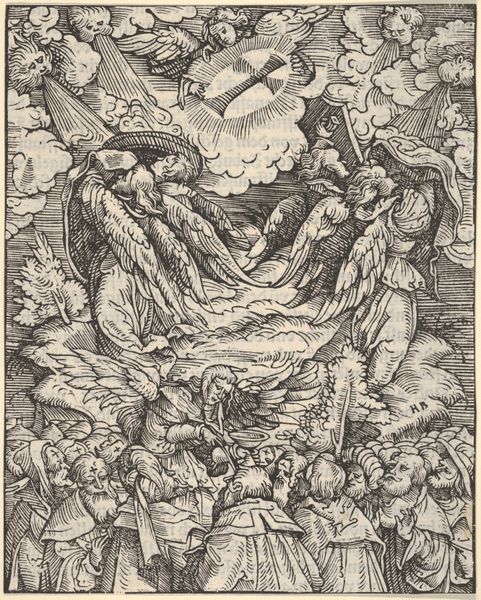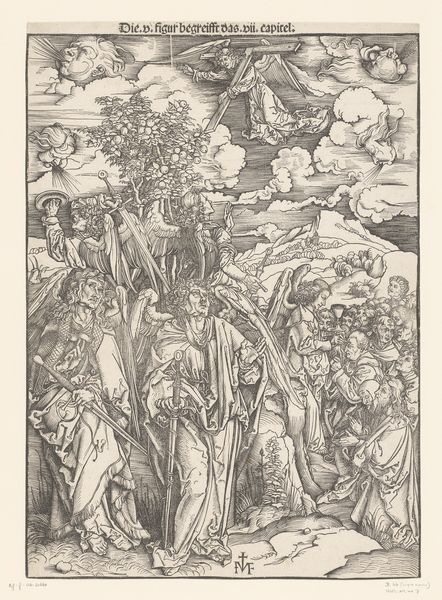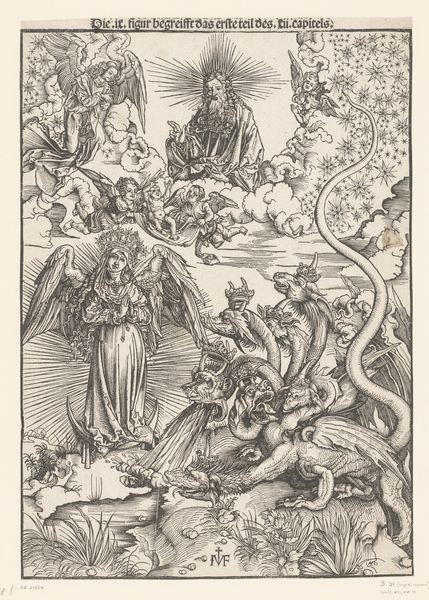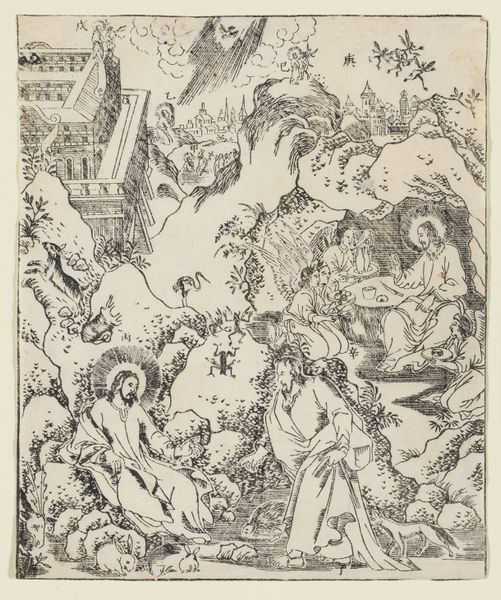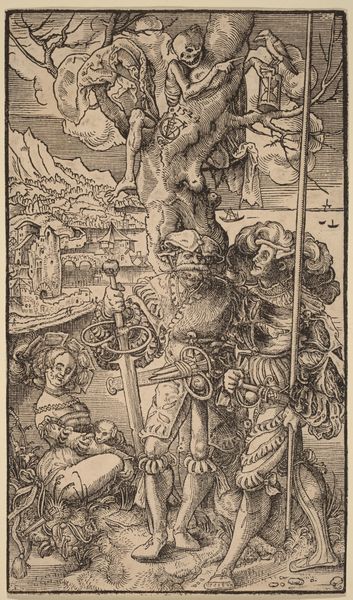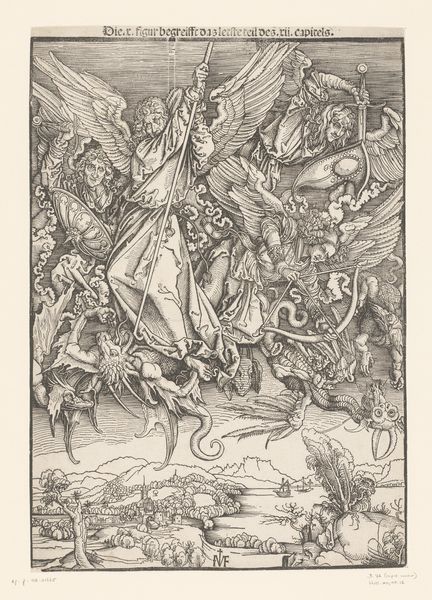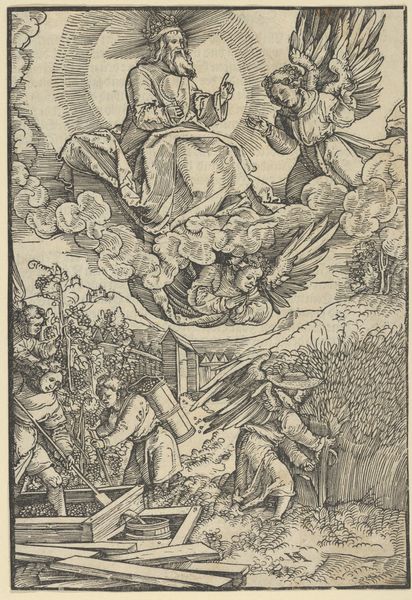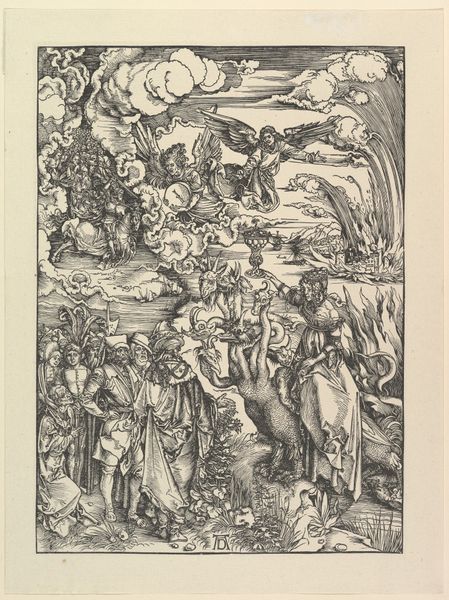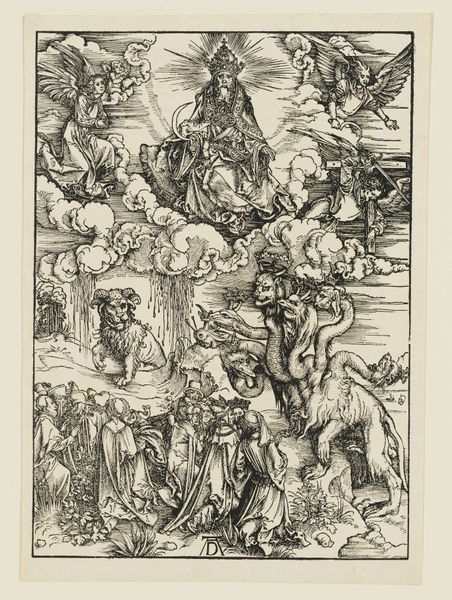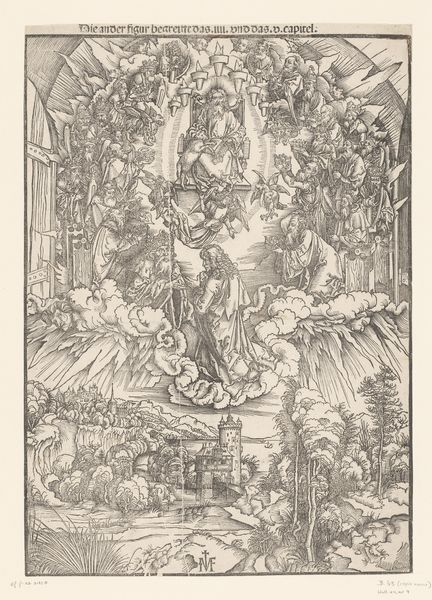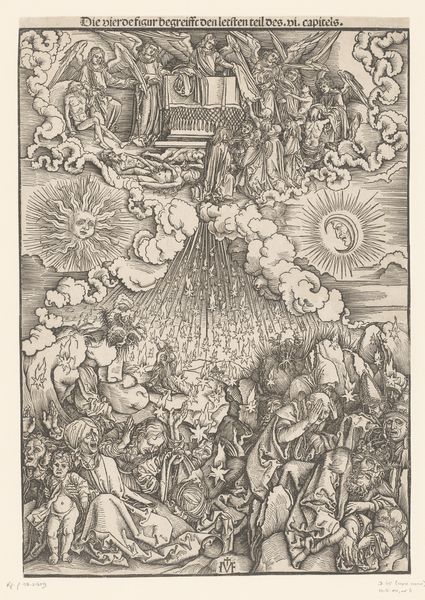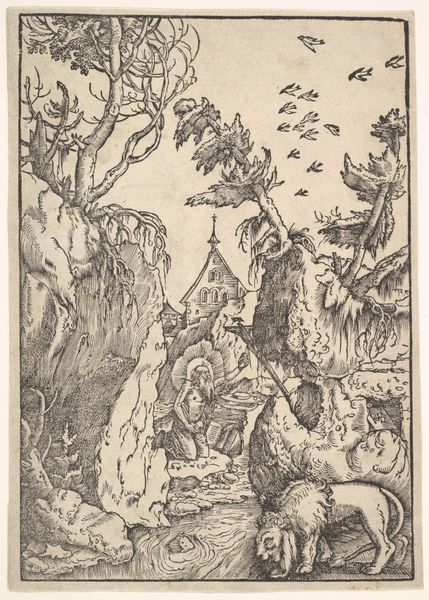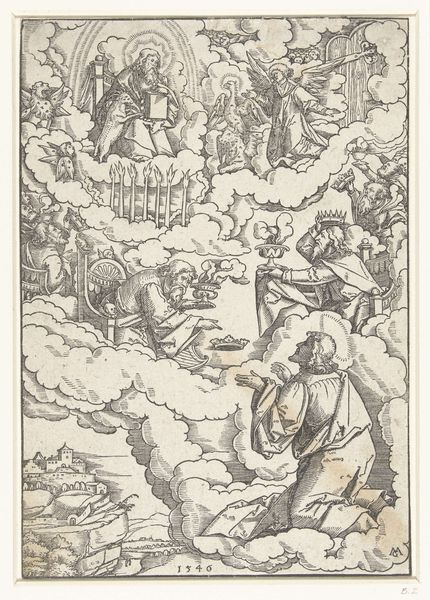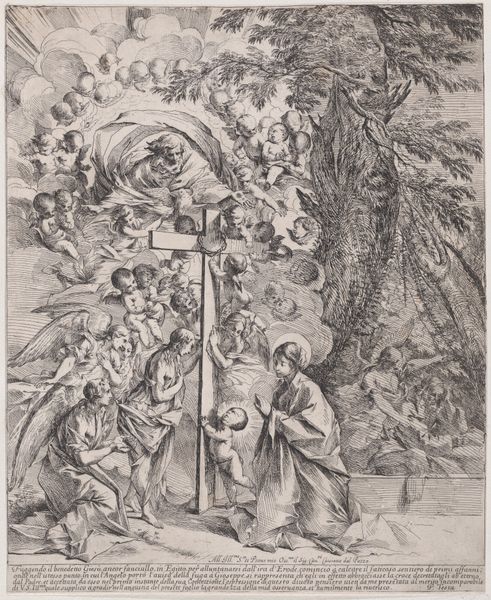
drawing, print, ink, engraving
#
drawing
#
pen drawing
# print
#
figuration
#
ink line art
#
ink
#
history-painting
#
northern-renaissance
#
engraving
Dimensions: height 221 mm, width 153 mm
Copyright: Rijks Museum: Open Domain
Editor: This is "The Body of Christ Carried to Heaven by Angels," created by Hans Baldung around 1515 to 1517. It's an engraving rendered in ink. I find the sheer amount of detail in this relatively small print so striking. What do you make of this piece? Curator: For me, it’s crucial to consider the historical means of production. This engraving would have been created using a painstaking process. Consider the labor involved: the careful carving into the metal plate, the inking, the printing itself. These were valuable skills in a nascent print market, yes? Editor: Absolutely! I hadn’t thought of it that way. Curator: And look closer: The image depicts Christ’s ascent, right? But where does this image circulate, and for whom? Were these mass-produced devotional images for private contemplation, luxury goods for a wealthy merchant class, or something else entirely? The act of mechanical reproduction democratizes the sacred in some sense, changing its mode of consumption. Editor: So the *materiality* of the print—the ink, the paper—changes how people interacted with religious imagery at the time? Curator: Exactly! Prints like this helped disseminate new ideas, reformist theologies perhaps, challenging the singular authority of the Church through relatively accessible, reproducible images. Editor: I never considered that before. So it's not just about *what* the image represents, but also *how* it was made and *who* could access it. That gives me a whole new perspective. Thanks! Curator: Indeed! It compels us to contemplate not just spiritual matters, but also matters of craft, labor, and social influence inherent to artistic production.
Comments
No comments
Be the first to comment and join the conversation on the ultimate creative platform.
